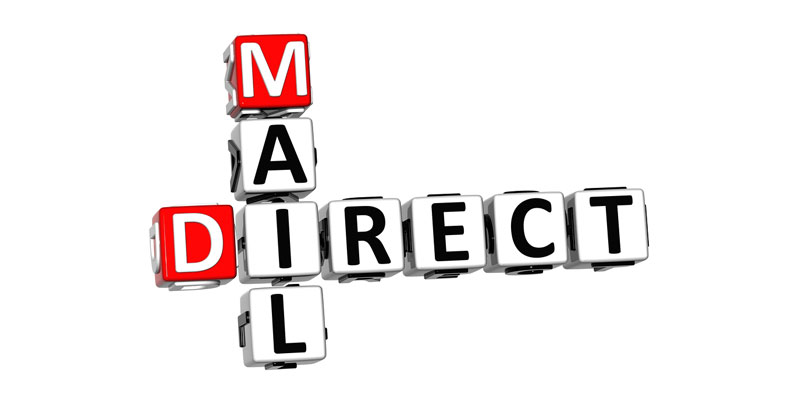Either before an agent takes his first app, or when he’s creating his business cards, he’ll have to answer one of two questions: What number will prospects and clients call to get ahold of him, and how will he fax his applications in once he writes them? These two unrelated realizations are inextricably linked now that these two services are sometimes offered by the same vendor or a sister company of the vendor.
In this post, we will examine not only the Top 10 vendors that insurance agents can look to when considering fax and phone numbers, but we will also talk about which is a better phone number to have: a toll-free 800 number or a local one. We will also look at the primary requisite of a fax service for insurance agents who deal with health and life insurance, who are faxing HIPAA-related health information. Finally, we will look at the top ten comparison criteria for the Top 10 vendors, revealing who comes out on top and who’s a waste of time or money for an insurance agent.
800 Number or Local Number?
On the list of considerations, phone comes before fax. Agents wanting to be portrayed as professional and trusting often consider the paradoxical argument: Which is better, a local number or a toll-free 1-800 number (or some variation of it). The answer is – it depends. There are primarily three variables to consider when deciding which is a better contact number for an agent:
- Size of Agency
- Area of Operation
- Impression
Although not an actual variable for determining a local vs. 800, the size of an agency will determine whether an agency has an IVR system. An Interactive Voice Response system is simply a filtering mechanism that guides callers to press a certain extension number to connect with a particular person who specializes in a specific service or solution.
Traditionally, 800 numbers have an IVR system, which is reserved for larger agencies, where people may need to talk to other employees in a different department. These days, you can have IVR on a local number if you wish, which is why the size of the agency doesn’t directly impact whether you go with a local or 800 number.
Area of operation is a much more important variable to consider when deciding which is a more appropriate choice for your agency: a local or 800 number. Area of operation will depend on how an agent presents, either face-to-face or over the phone. Agents who work face-to-face usually work in the general area where they live. Consumers or prospects are more likely to answer the phone when it’s a local number; that is an indisputable truth of prospecting.
At the same time, if an agent prospects over a larger area like multiple states, then using an 800 number can be helpful when it comes to the prospect contacting you back. Remember, not everyone has free long distance, and giving prospects a hassle-free way of contacting you without incurring charges is considerate as well as professional.
Which leads us to our last variable of choosing an 800 number or a local number for your business: the impression you are trying to make. Agents wanting to appear professional and credible may desire an 800 number to indicate that quality. At the same time, local numbers can make you seem more accessible and not tied to a corporate entity that has a complicated calling structure to navigate.
When it comes to an agent’s website, it’s advised to put a local number and email address at the top header or bottom footer of the website. The reasoning is because consumers would rather reach out and call or email than fill in a contact form (that may sign them up to be contacted by hundreds of agents).
So what’s the verdict? Well, if you’re an agent working large areas or within a larger agency structure, get an 800 number. If you work primarily local and face-to-face, get a dedicated local business line. If you’re going the local route, you might still be able to get a free Google Voice number that you can use as a dedicated line, in some areas. With the mobile app, you can decide to take and place calls on your phone as that number with one click.
The only thing you would need after that is a fax line, which we will cover next.
What the Fax?
If you’re going to be independent or run your own insurance business, you’ll need to consider a faxing solution to submit applications to insurance carriers. (You weren’t going to make everyone wait for you to send it via snail mail, were you?) Not all insurance companies have e-applications or the ability to upload scanned applications directly to their system … at least, not yet.
The majority of agents reading this blog will be health and life agents, more specifically Medicare Supplement and Final Expense agents. This means you’ll be using applications that include sensitive health information covered by HIPAA regulations. HIPAA (Health Insurance Portability and Accountability Act of 1996) sets the standards for transmitting private personal medical data. Maximum fines for violating HIPAA standards are capped at $1.5 million per incident, according to Search Data Management.
Agents must take extra precautions to safeguard the applications they are transmitting—not only because of sensitive HIPAA medical information, but also because of sensitive banking information that usually is conveyed in the application for automatic deductions of monthly premiums via the checking deposit option.
Besides considering a HIPAA-compliant fax service, an agent will have to consider whether he’ll go with a combo service that enables his 800 phone number to operate as a simultaneous fax line. Having a combo fax/800 number can be efficient, as you’ll see below—not only can it simplify the number of vendors and accounts to deal with; it may be cheaper just having one service.
Customer Service
When we called around to speak with these vendors, we quickly noticed that there was a huge elephant in the room—namely, a competitor that they were all dealing with. One of the biggest differentiators we heard was, when comparing their services to this competitor, the other vendors were quick to point out that they utilized American customer service reps, unlike this competitor.
This can be a valid concern for agents—whether they can find answers to their questions in an easy, understandable way when it comes to their account and its features. Ideally, agents shouldn’t have to call the vendors for anything; the service should be smooth and seamless. Unfortunately, that doesn’t always happen. Whether ordering another number, accessing your faxes, or configuring a more technical aspect of the account like an IVR system or voice mail messages, agents may have to contact customer support at least a few times. It’s up to the agent to decide if the cultural/language barrier of the service provider’s outsourced team is worth considering when deciding on vendors.
10 Comparison Features
When we sat down and asked ourselves what agents would want to know when comparing fax and phone options, we came up with the 10 features you see listed below. There are more ways to compare these companies by evaluating the more advanced features that some of them have, like voice mail to text, on-hold music or call routing options, but for this article we just focused on the basics.
- 800 Phone Number Availability
The reason this is a feature is because some of the vendors below provide only fax services, which will help agents locate the vendors that only offer fax or may offer combo products. - Local Phone Number Availability
Like the above reason, not all vendors offer telephone services. - Cost Per Minute
The majority of vendors don’t have plans for unlimited calling, or may have unlimited calling for the local number but not for the 800 number. There’s usually a per-cent charge for exceeding the allotted monthly bank of minutes, which averages around 3-4 cents per minute. - Fax Enabled
Some vendors provide phone service only and do not provide online fax services. - HIPAA Compliant Fax
This is an important category for agents to look at: Is the vendor’s electronic fax solution HIPAA compliant? During our research, there were few options to choose from. - Call Forwarding
Besides fax services, agents naturally want to know if a number has call forwarding capabilities, in case they are in the field and need to take a call from a client. - Desktop Application
Many phone providers utilize digital Voice Over Internet Protocol or VOIP. Basically, the company uses the internet as a phone line to route phone calls and faxes, as opposed to using old-fashioned copper wire in traditional landlines. A desktop app allows an agent to take calls right over his computer at his desk without having a local landline service. Some desktop apps have faxing capabilities, as well. - Mobile Application
Like the desktop app, the mobile app allows the agent to take and place phone calls and faxes via his mobile phone, in addition to configuring any advanced settings for the account like voice mail messaging, etc. - Number Portability
Number portability is the ability to bring in or transfer out a given number for either fax or phone services. This helps a business not have to redo all their business citations, brochures, and other branding outlets with new numbers. You may not stay with the same vendor forever, so it’s nice to know that you won’t be stuck choosing another number down the road. - Plans Start At
The pricing feature is self-explanatory; this allows new to easily compare their options to see which is the better beginning value. Agents who have larger agencies or want to know more about a vendor can click through to the site’s plan features and pricing page.
FEATURES
- 800 PHONE #
- LOCAL
- PER MINUTE
- EFAX CAPABILITY
- HIPAA
- FORWARD
- DESKTOP
- MOBILE
- PORTABLE
- WEBSITE
EFAX CORP.
- X
- X
- X
- 200pgs
- YES
- X
- YES
- YES
- LOCAL ONLY
METRO FAX
- X
- X
- X
- 500pgs
- X
- X
- YES
- YES
- YES
SFAX
- X
- X
- X
- 100pgs
- YES
- X
- YES
- YES
- YES
NEXTIVA
- Incl
- Incl
- 2.5
- Unlimited
- KINDA
- YES
- YES
- YES
- YES
GRASSHOPPER
- YES
- YES
- 6.0
- RECEIVE ONLY
- X
- YES
- X
- YES
- YES
FEATURES
- 800 PHONE #
- LOCAL
- PER MINUTE
- EFAX CAPABILITY
- HIPAA
- FORWARD
- DESKTOP
- MOBILE
- PORTABLE
- WEBSITE
VITELITY
- YES
- YES
- 2.5
- X
- X
- ?
- ?
- ?
- LOCAL ONLY
KALL8
- YES
- YES
- 7.0
- RECEIVE ONLY
- X
- YES
- X
- X
- $50 FEE
PHONE.COM
- YES
- YES
- ?
- X
- X
- YES
- X
- YES
- YES
PIONEER
- Extra
- YES
- 1.9
- 10mo extra
- X
- YES
- YES
- YES
- ?
RINGCENTRAL
- Incl
- Extra
- 3.9
- Unlimited
- YES
- YES
- YES
- YES
- YES
Winners
I was surprised when I researched this post. I found that the majority of e-fax services are owned by one corporation, eFax. I also learned that there are few HIPAA compliant fax options for insurance agents, and even fewer HIPAA compliant combination phone/fax providers.
If you want to utilize a HIPAA compliant fax provider, you only have one combo provider and two solitary online fax providers to choose between … which is why we are awarding the win to RingCentral. It is the only combo vendor out there that makes it easy to do business and be compliant. Offering both a mobile and desktop app, the company’s plans start under $30 a month, making it highly affordable for agents to have both an 800 number and fax service. Perhaps the only drawback is the outsourcing of customer service, which is a feature that all of RingCentral’s competitors will mention. RingCentral might get 10 out of 10 if they used American customer service reps, which they will note is available for higher priced accounts, although those usually exclude new agents.
Losers
It was tough to call out any losers for this roundup, but I will say this: in this day and age, it shouldn’t be hard to offer both VOIP and online fax services. My suggestion to the other fax services (which are all owned by eFax): add VOIP already! Also, eFax could have landed next to RingCentral in the Winner section, because they are one of the few vendors that offer HIPAA compliant faxing (for their corporate service only, starting at $30 a month); but unfortunately, you have to buy VOIP service from another vendor or from their sister company, eVoice, which has plans starting at $13/month.
I’ll also mention that Nextiva, although they say they have a HIPAA compliant process, unfortunately has not applied for accreditation to be able to market their fax service as HIPAA compliant. It’s the same as a farmer at the local market telling you his produce is practically organic, but he hasn’t jumped through all of the regulatory hoops yet to put it on his packaging. So if you’re looking past RingCentral due to their outsourcing of labor, you might look to Nextiva. Let this be a warning to Nextiva: get accreditation for HIPAA compliance to become a true competitor in the online fax/800 number game.
Conclusion
We know there are legions of online fax providers and VOIP vendors out there, but we only covered the Top 10 most commonly known ones within the insurance industry. If you think we’ve left out a vendor that does either VOIP or electronic fax (hopefully in compliance), feel free to leave us a comment down below and we’ll try to cover them next time we update this article.
Until then, we hope this article gives agents all they need to decide which vendor will meet their needs when choosing between VOIP, fax, or both.












Over the last 10 years I’ve used eFax, RingCentral, and Nextiva…in that order. RingCentral is what I went back to and it has been the one company that has always been miles ahead of all the rest. I have a true 800 number, fax that’s compliant, and an app that I use frequently. The fax feature is what I use most by far. Being in the field and having the ability to send and receive mobile faxes from carriers as well as clients has often been a factor that has made the difference between winning and losing sales. The customer service outsource issue was a bit frustrating at first, but not anymore.
I noticed SR Fax was not on your list. What do you think of them? I have been using them for a couple of years. They do claim to be HIPAA compliant.